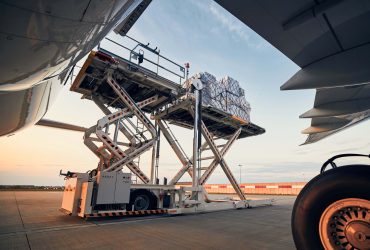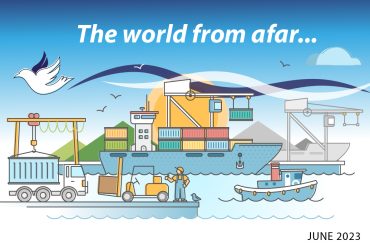Monthly freight round up – July 2023
July might have been colder and wetter than average in the UK but across the world soaring temperatures caused catastrophic wildfires, impacting communities, livelihoods and indeed crops.
Elsewhere, we heard news of a fire breaking out on a Dutch cargo ship carrying nearly 3,000 vehicles, which sadly killed one person and injured many others. The ship was travelling from Germany to Egypt, and it’s believed that an EV could be the cause of the blaze.
To discover more of the industry’s biggest headlines in July, keep reading as we look back at some of the most recent news.
Trade talks continue
Earlier this month it was revealed that Britain had signed a deal to join the Indo-Pacific trade bloc. The agreement will see Britain join 11 other members including Canada, Japan, Mexico, Singapore, and Australia in a bid to strengthen international trade. The UK government has confirmed that up to 99% of the UK’s currently exported goods to these countries could benefit from zero tariffs.
Elsewhere in the world, trade talks between Australia and Europe have stalled for the second time in a month. An official spokesperson explained that key differences remained unresolved, specifically in relation as to whether the EU will open its markets to Australian farm products. Additional discussions are planned.
International port news
Recent data has shown an increase in the number of shipments over the last 12 months at the ports of Southampton and Felixstowe. At Felixstowe, the average 14-day shipment volume increased by 15% from April to May and again by 14% from May to June. Over in Southampton, the port has seen an increase of 60% from July 2022 to July 2023.
Over in California, federal grants of more than $700m have been awarded to several ports in Los Angeles, Long Beach, and Oakland to help speed up the movement of goods. It’s hoped the investment will modernise the ports, eliminate costly bottlenecks and reduce pollution, all while strengthening trade and international supply chains.
In Canada, however, the news wasn’t quite so positive. The country’s busiest port has been impacted by dock worker protests and strikes after they rejected a mediated agreement for the second time regarding their pay. It’s estimated that around $7.6 million worth of shipments has been affected and Canada’s federal government may now have to get involved as the disruption enters its fourth week.
Innovation in the sector
July also saw the announcement that Tyne and Wear NHS Foundation Trust had electrified its first fleet and officially installed charging points across 13 sites. It comes as PepsiCo also announced they would be fuelling their fleet in a unique and innovative way using hydrotreated vegetable oil. The global food and drink company announced they would be replacing their diesel trucks for both Walkers Crisps and Quaker Oats deliveries.
In other news, courier company DPD is the latest name to expand its fleet with AI-powered robotics in UK cities and towns. More recently, the company confirmed that it had identified up to 30 locations where robots could be deployed.
Global food prices in question
Russia has revealed that it will pull out of the Black Sea Grain Initiative – an agreement that originally allowed Ukraine to export grain despite a military blockade. Shortly after this announcement, in a matter of days, grain prices began to rise, sparking food crisis fears all over the world.
Elsewhere, India has banned non-basmati white rice exports, another move which could see global food prices rise. They made the decision in a bid to curb domestic inflation, but so far international officials have urged them to refrain from moving forward with it.
And that’s a wrap…
We’ll be back at the start of September with another overview of everything that’s been going on. In the meantime, if you have any questions about the stories covered above or need support with your current supply chain, please get in touch.


